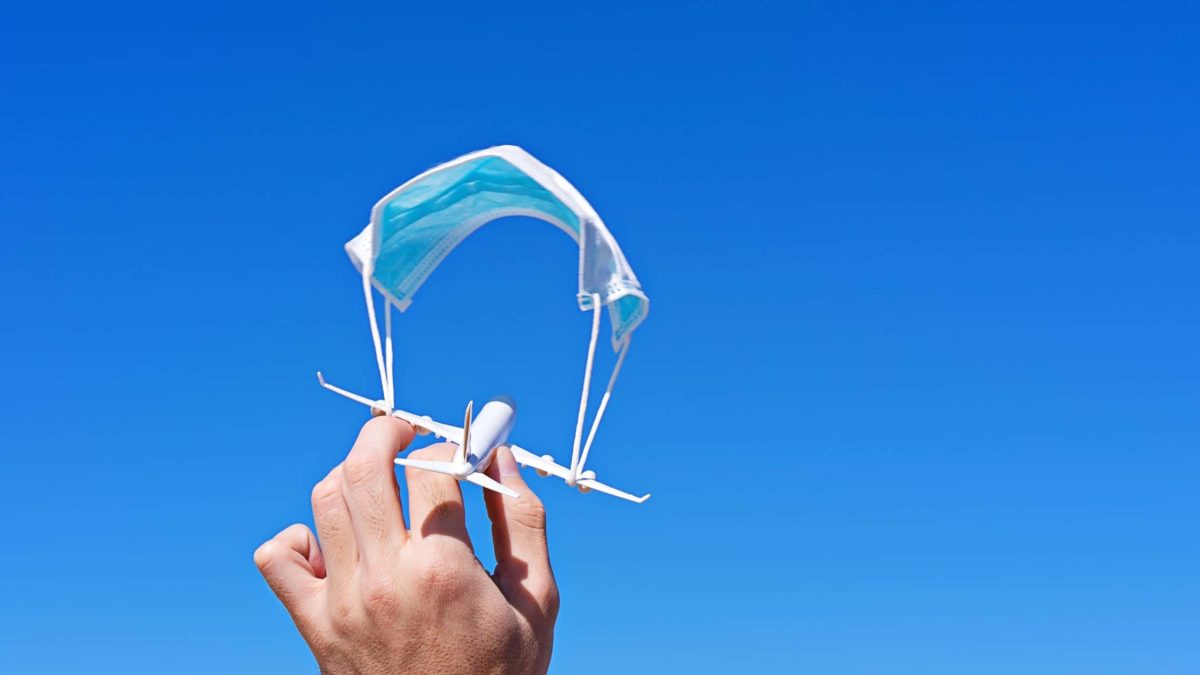As the pandemic wears on, ASX travel shares that went into hibernation in March remain in a state of suspended animation. With predictions a vaccine may not be widely available until well into 2021, international travel remains off the cards for the foreseeable future. Domestic travel is severely restricted thanks to the ongoing coronavirus outbreak in Victoria. So where does this leave ASX travel shares? We take a look at how they are managing.
Sydney Airport Holdings Pty Ltd (ASX: SYD)
Sydney Airport launched a capital raising yesterday alongside the release of its half year results, which revealed the unprecedented impact of the pandemic. The airport saw 9.4 million passengers in 1H20, a 56.6% decline from 1H19. Revenue fell 35.9% to $511 million, resulting in a 35.4% decline in earnings before interest, taxes, depreciation and amortisation (EBITDA), which fell to $300.4 million. No distribution was declared, and none is expected to be declared for 2020 given the current outlook.
Sydney Airport is a crucial component of Australia's infrastructure. As the country's largest airport, accounting for almost half of Australia's air cargo by weight, Sydney Airport serves as an international gateway. International passengers contribute approximately 70% of passenger generated revenues, a source of funds that will remain missing for the foreseeable future.
In order to reinforce its balance sheet and ensure it remains well capitalised for a range of recovery scenarios, Sydney Airport launched a $2 billion entitlement yesterday. Funds will be used to reduce net debt to $7.1 billion from $9.1 billion. The company took action early in the pandemic to put in place extra liquidity, however after six months of pandemic impacts, significant uncertainty continues as to how long aviation markets will take to recover to pre-COVID-19 levels.
The Sydney Airport share price took a nosedive with the introduction of travel restrictions in February and March. As coronavirus cases rose, the Sydney Airport share price plummeted, falling 45% from a February high of $8.63 to a March low of $4.70. Sydney Airport was trading at $5.39 prior to yesterday's announcement and trading halt. Shares are being offered under the entitlement offer at $4.56.
Corporate Travel Management Ltd (ASX: CTD)
Corporate Travel Management is due to report its full year results on Wednesday 19 August. The travel company last updated the market about the impacts of the pandemic in May, revealing it had reached agreement with its banking group to waive all financial covenants for calendar year 2020. At that point, Corporate Travel had a net cash position of approximately $30 million. When combined with low cash burn and revised banking facility terms, this left the company "in a strong liquidity position and well placed to rebound once travel resumes," according to Managing Director, Jamie Pherous.
One of the few ASX travel shares not to raise capital in the current downturn, Corporate Travel Management implemented comprehensive cost reductions at the start of the pandemic. These actions combined with the company's strong liquidity position should enable it to withstand an extended period of reduced activity. The company has no retail footprint and uses technology to deliver its services, meaning a high proportion of its cost base is variable.
In March, the company said that many of its clients across all regions are continuing to travel, albeit at low levels. Nonetheless, Corporate Travel chose to delay payment of the interim dividend of 18 cents ($19.62 million) until October. The decision is to be reviewed closer to the time, however with no signs of travel resuming, it seems unlikely the dividend will be paid. In stress testing performed at the start of the pandemic, the company presumed no international travel for a period of six months. With six months past and no signs of a resumption of international travel, the company's revenues will no doubt take a hit when it reports full year results.
Flight Centre Travel Group Ltd (ASX: FLT)
Flight Centre cancelled its interim dividend in March as the pandemic spiralled out of control. The 40 cent per share dividend would have seen a total of $40.1 million flow to shareholders. Uncertainty meant the company felt it appropriate to preserve cash in order to protect long-term shareholder value. Shares were suspended for two days while the travel operator developed its response to travel restrictions and engaged in discussions with stakeholders on how to manage the financial impacts.
Flight Centre then hit the market with a $700 million capital raising in April, designed to shore up the balance sheet. The company confirmed its cost control measures were anticipated to reduce annualised operating expenses by approximately $1.9 billion. Operating expenses were to be reduced to $65 million per month by the end of July 2020. Flight Centre reported total transaction values in April were just 5% – 10% of normal levels.
The Flight Centre share price plunged from a high of over $40 in January to a low of $8.92 in March. Although the share price has since recovered somewhat to $11.48, at the time of writing, Flight Centre's future depends on the lifting of government travel restrictions. The company says it has continued to win new corporate accounts during the shutdown period, which should help drive growth when conditions recover and normalise.
In May, Flight Centre agreed to sell its Melbourne head office located in St Kilda Road, with the $62.15 million sale completed in July. The company acquired the property in 2008 for $32 million. The sale, along with government support initiatives, is expected to have a net positive cash impact. In July, the company secured access to a debt facility of up to 65 million British pounds. The funding was made available by the Bank of England's COVID Corporate Financing Facility, which is designed to support short-term liquidity as firms work to overcome disruption caused by the pandemic.
Foolish takeaway
ASX travel shares are still largely stuck in limbo – existing in a state of suspended animation as the pandemic prevents them from plying their trade. Investors will no doubt be hoping for a lifting of restrictions sooner rather than later to give the recovery of ASX travel shares a boost.









